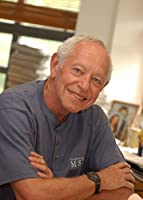Dr. Leon E. Rosenberg, a physician-scientist and medical geneticist whose pioneering research on inherited metabolic disorders in children led to the discovery of the biochemical basis of several disorders, and then to ways of diagnosing and treating them, died on July 22, 2022 at the age of 89. He is survived by his wife, Diane Drobnis, brother Irwin Rosenberg, four children, Robert Rosenberg, Diana Clark, David Korish, and Alexa Rosenberg, six grandchildren, and one great-grandchild.
Leon graduated from Madison West High School in 1950. He attended the University of Wisconsin and received his Bachelor of Arts degree in 1954 and Doctor of Medicine degree in 1957. He was a clinical associate at the National Cancer Institute from 1959 to 1962 and a senior investigator from 1963 to 1965.
He chose to become a medical geneticist in the early 1960s, when the field barely existed, and rose to become one of its most notable exemplars and mentors.
Starting as an assistant professor at the Yale University School of Medicine, Dr. Rosenberg was the first to recognize inherited disorders of vitamin B12, and to show that supplements of the vitamin in affected children could save their lives or alter dramatically the natural history of the disorders in them. This work led to his selection as the founding chair of a new department of Human Genetics at Yale which joined fundamental genetics and clinical genetics into a single unit. In 1984 he was appointed Dean of the Yale School of Medicine, and served in that capacity until 1991.
After 26 years at Yale, Dr. Rosenberg was appointed Chief Scientific Officer of the Bristol-Myers Squibb Company. Under his leadership the company discovered and developed pharmaceuticals in cancer, cardiovascular disease, AIDS, and infectious disorders. He left BMS in 1998 at the age of 65, at which point Dr. Rosenberg was appointed Lecturer at the rank of Professor at Princeton University in the department of Molecular Biology and in the Woodrow Wilson School of Public and International Affairs.” After 16 years at Princeton, he worked as an upper school science teacher and scientist at the Princeton Day School until his retirement in 2018.
Dr. Rosenberg was elected to membership in the American Academy of Arts and Sciences in 1976. He was a member of the National Academy of Medicine and the National Academy of Sciences. He received honorary degrees from the University of Wisconsin and the Mount Sinai School of Medicine. He received the Kober medal in 2003 from the Association of American Physicians. He received the McKusick Award in 2011 from the American Society of Human Genetics.
Dr. Rosenberg’s professional career was also marked by comments he made about two matters of public importance: the abortion debate; and the underrepresentation of African-Americans as students and faculty members in academic institutions.
He involved himself with the abortion issue by testifying in 1981 before a US Senate subcommittee considering a bill whose aim was to overturn the Roe v. Wade decision handed down by the United States Supreme Court in 1973. Dr. Rosenberg, ardently pro-choice, said the following: “We all know that this bill is about abortion and nothing but abortion. If this matter is so compelling that our society cannot continue to accept a pluralistic view that makes women and couples responsible for their own reproductive decisions, then I say pass a constitutional amendment that bans abortion…and overturns Roe v. Wade. But don’t ask science or medicine to help justify that course, because they cannot. Ask your conscience, your minister, your priest, your rabbi, or even your god because it is in their domain that this matter resides.” Dr. Rosenberg’s testimony, and that of other influential scientists, was responsible for the bill ultimately dying before it reached the Senate floor.
In 1988, while Dean of the Yale School of Medicine, Dr. Rosenberg delivered the address before the annual Graduate and Professional Assembly. He spoke about African-Americans as an underrepresented, disadvantaged minority at Yale and other academic institutions. First, he presented powerful statistical evidence for disparities in income, employment, education, and a variety of parameters of health. After urging the assembled students to open their hearts and minds to the issue, Dr. Rosenberg said: “My generation has proven that it is incapable of making Martin Luther King’s dream a reality…Age has a way of bowing the head rather than squaring the shoulders. We need to be reinforced by you–the less scarred, less scared younger generation. You are the hope of our society. Together, but only together, perhaps we can lead our nation to a height it has never been for a view it has never seen.”
Services are private and under the direction of Mather-Hodge Funeral Home, Princeton.
In lieu of flowers, the family encourages contributions to your cause of choice in his honor.

